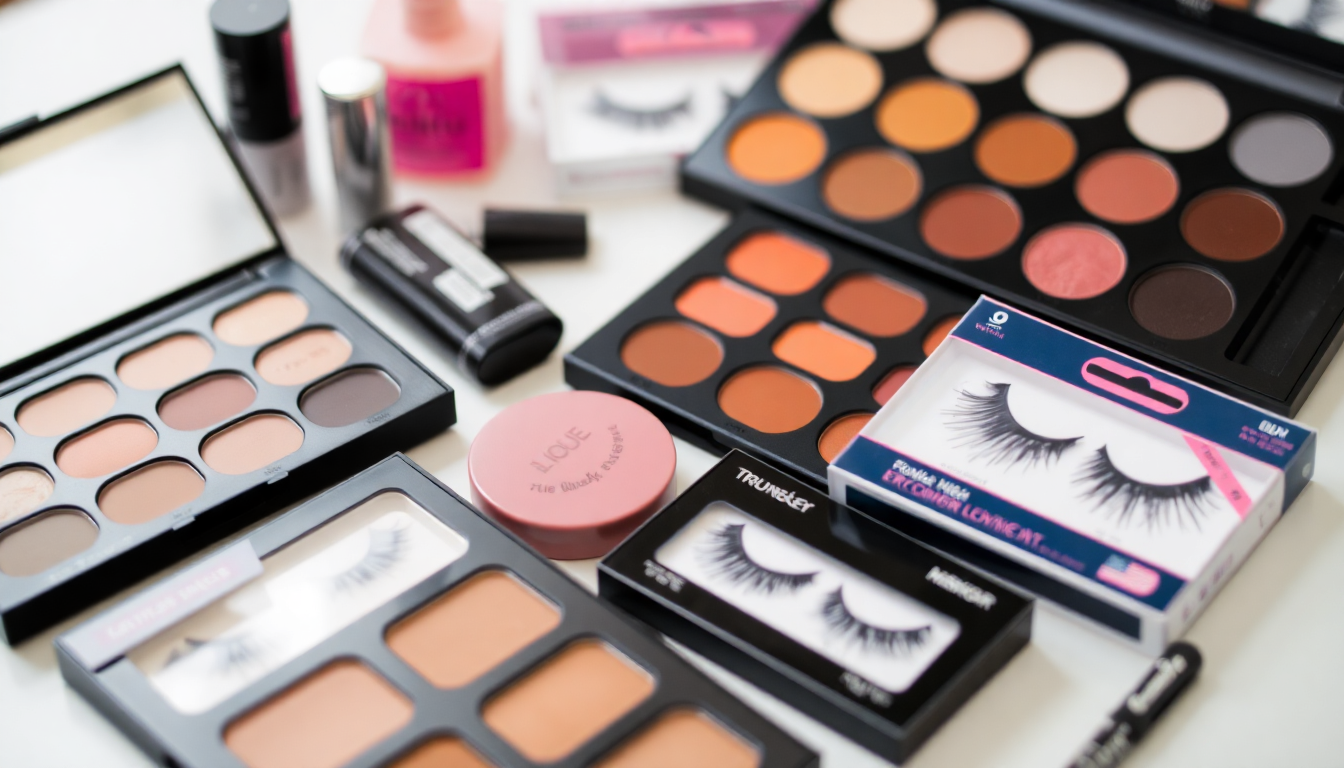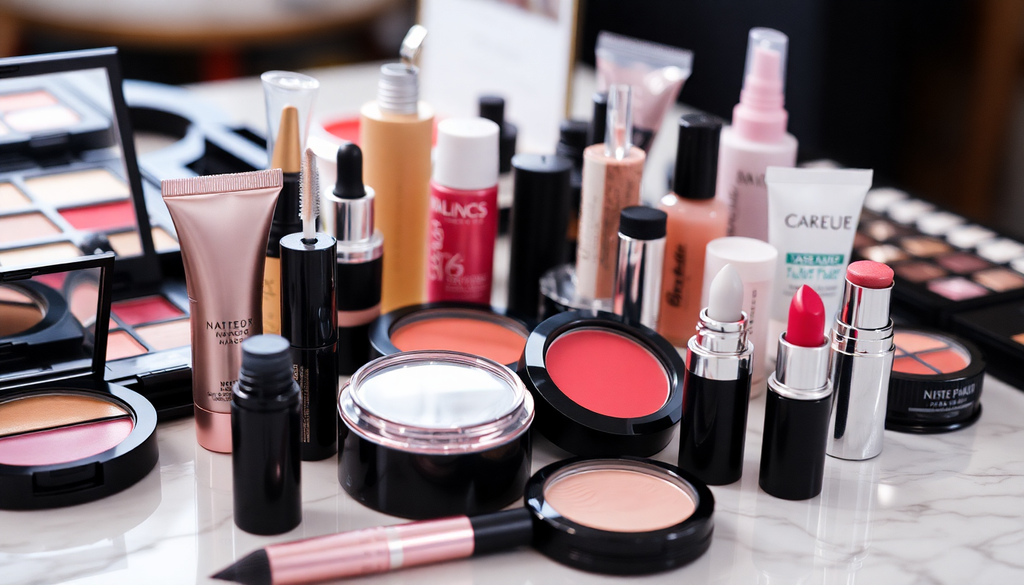
Essential Strategies for Launching a Private Label Makeup Brand in New Zealand: From Eyelash Packaging to Custom Eyeshadow Palettes
Introduction
Launching a private label makeup brand in New Zealand presents a unique opportunity, given the country's vibrant beauty culture and increasing demand for innovative makeup products. With the right strategies, you can carve a niche in this competitive market. This comprehensive guide covers everything you need to know, from product development and compliance to establishing an online presence and marketing your brand.
1. Understanding the New Zealand Cosmetics Market
Before you start your journey, it's essential to grasp the landscape of the cosmetics market in New Zealand. This understanding will inform your product offerings and marketing strategies. Key aspects to consider include:
- Consumer Preferences: New Zealand consumers are increasingly looking for cruelty-free, vegan, and sustainably sourced products. Conduct surveys or focus groups to gather insights about what your potential customers desire.
- Market Trends: Stay updated on emerging trends, such as clean beauty, personalized makeup services, and the rise of online shopping.
- Competitor Analysis: Research existing brands, identify their strengths and weaknesses, and pinpoint gaps in the market that your brand could fill.
2. Compliance with Cosmetic Regulations
Compliance with local regulations is crucial for your brand’s credibility and success. In New Zealand, cosmetics are primarily regulated by the Ministry of Health. Ensure you understand the following:
- Labeling Requirements: Your products must include accurate ingredient lists, usage instructions, and any necessary warnings. Familiarize yourself with the New Zealand Food Safety website for detailed information.
- Safety Assessments: All cosmetics must undergo safety assessments to ensure they are safe for consumer use. Collaborate with a qualified professional to conduct these assessments.
- Import Policies: If you're sourcing products from overseas, understand customs regulations, tariffs, and any import restrictions applicable to cosmetics.
3. Choosing the Right Manufacturer
Your choice of manufacturer can significantly impact your product quality and brand reputation. Consider the following when selecting a manufacturer:
- Expertise: Look for manufacturers with a proven track record in producing high-quality makeup products. Verify their experience with private labeling.
- Production Capabilities: Ensure the manufacturer can meet your production demands, whether you’re starting small or planning for larger quantities.
- Communication: Establish clear lines of communication to ensure that your specifications and expectations are met throughout the production process.
4. Designing Your Product Line
The design of your product line is vital for attracting customers. Focus on:
- Innovative Packaging: Packaging plays a crucial role in consumer choice. Invest in eye-catching and functional packaging designs for your products, such as unique eyelash packaging and custom eyeshadow palettes.
- Diverse Product Range: Consider offering a range of products, including foundations, lipsticks, eyeliners, and highlighters, to cater to different customer preferences.
- Quality Control: Implement rigorous quality control measures to ensure that every product meets your standards before reaching the consumer.
5. Establishing an Online Store
In today’s digital age, an online presence is vital for any makeup brand. Steps to set up your online store include:
- Selecting an E-commerce Platform: Choose a reliable e-commerce platform such as Shopify, WooCommerce, or BigCommerce that aligns with your business needs.
- Website Design: Invest in professional website design that is user-friendly and mobile-responsive. Ensure your site showcases your products effectively.
- Secure Payment Options: Implement secure payment gateways to facilitate smooth transactions, offering options like credit cards, PayPal, and Afterpay.
- Shipping and Returns: Clearly outline your shipping policies and return procedures to build trust with your customers.
6. Effective Marketing Strategies
To successfully promote your makeup brand, consider the following marketing strategies:
- Social Media Engagement: Leverage platforms like Instagram, TikTok, and Facebook to connect with your audience. Share tutorials, behind-the-scenes content, and customer testimonials.
- Influencer Collaborations: Partner with beauty influencers who align with your brand values to reach a wider audience and gain credibility.
- Email Marketing: Build an email list to keep your customers informed about new product launches, promotions, and beauty tips, fostering customer loyalty.
- Content Marketing: Create valuable content such as blogs, videos, and tutorials that resonate with your audience, establishing your brand as an authority in the beauty space.
7. Building Your Brand Identity
Your brand identity is essential for connecting with your audience. Focus on:
- Crafting a Compelling Brand Story: Share your journey, mission, and vision. Make your brand relatable and authentic to engage your audience emotionally.
- Visual Branding: Develop a cohesive visual identity, including a memorable logo, color palette, and typography that reflects your brand personality.
- Consistent Messaging: Maintain consistency in your messaging across all platforms, ensuring that your brand voice resonates with your target audience.
8. Customer Engagement and Feedback
Engaging with your customers and gathering feedback is crucial for continuous improvement. Consider these strategies:
- Customer Reviews: Encourage customers to leave reviews and testimonials, which can enhance your brand credibility and influence potential buyers.
- Conduct Surveys: Regularly survey your customers to gather insights on their preferences, product satisfaction, and suggestions for improvement.
- Responsive Customer Service: Establish a responsive customer service system to address inquiries and concerns promptly, enhancing customer satisfaction.
9. Scaling Your Business
Once your brand gains traction, consider strategies for scaling your business:
- Expanding Product Lines: Introduce new products based on customer feedback and market trends to keep your offerings fresh and exciting.
- Exploring New Markets: Research opportunities to expand your brand into international markets, assessing demand and compliance regulations.
- Investing in Technology: Utilize technology to streamline operations, improve customer experience, and enhance marketing efforts.
Conclusion
Launching a private label makeup brand in New Zealand requires a multifaceted approach, from understanding market dynamics to effective marketing strategies and customer engagement. By following these essential strategies, you can build a successful brand that resonates with consumers and thrives in the competitive beauty industry. Embark on your journey with confidence, and remember that adaptation and innovation are key to long-term success.




